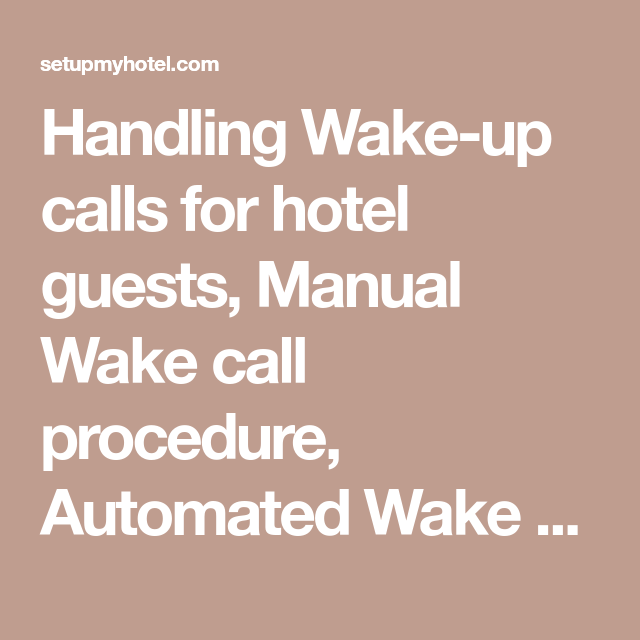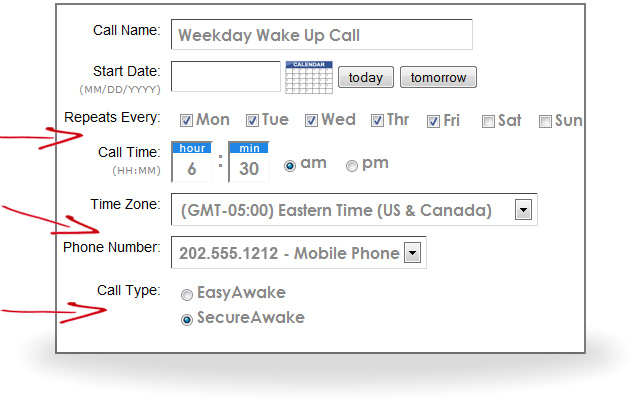

Unwanted hotel wake-up calls are a common source of frustration for many travelers. A jarring alarm disrupting a peaceful sleep can ruin a vacation before it even begins. This article delves into the intricacies of this frequent traveler’s complaint, examining the causes, impacts, and providing practical solutions to prevent the annoyance of premature disturbances. The structure of this article will cover the reasons for unwanted wake-up calls, how they affect the guest experience, and practical steps hotels and guests can take to avoid such problems. We’ll also offer advice on how to navigate hotel communication policies regarding wake-up calls.
The Troublesome Truth of Unwanted Wake-up Calls
The experience of being rudely awakened by a hotel alarm system, when you weren’t expecting it, can greatly detract from the overall vacation experience. This frustrating situation, often arising from miscommunication or faulty systems, results in a negative impact on a guest’s well-being. An early morning alarm can undermine the relaxation and enjoyment a traveler seeks, especially if the call happens before a planned departure time. Hotels should invest in a reliable system to avoid this issue.
Miscommunication and Mistaken Times: Common Causes of the Problem
Defining the Issue of Unwanted Calls
One of the most frequent reasons for unwanted wake-up calls involves discrepancies in communication between guests and hotel staff. Sometimes, guests either don’t specify their preferred wake-up time or misunderstand the procedures. This ambiguity can result in a disruptive alarm jarring a tired guest. Sometimes guests have a specific time for a wake up call. These misunderstandings frequently lead to surprise awakenings before a guest is ready, potentially leaving guests feeling irritated or even resentful. Often, the underlying problem is simply a failure to communicate effectively.
Inadequate Wake-Up Call Systems: A Technological Culprit
Broken Alarms and Disappointing Technology
Another significant factor contributing to unwanted hotel wake-up calls is the reliability of the alarm system itself. Faulty alarm systems, malfunctions in the wake-up call mechanisms, or outdated technology can all lead to the delivery of unintended calls. A lack of clarity in the wake-up procedures also undermines the trust guests have in the hotel’s services. In addition, a lack of clear communication between the guest and hotel staff can cause problems. This situation can be avoided through clear communication protocols.
The Impact of Premature Disturbances on Guest Satisfaction
The Ripple Effects on Travel Experiences
The annoyance of premature disturbances greatly diminishes guest satisfaction. Imagine a traveler anticipating a relaxing morning, only to be jolted awake by an unwelcome wake-up call. Not only is this disruptive, it can negatively impact their perception of the hotel’s service. Negative experiences often translate into negative reviews, which can significantly impact the hotel’s reputation. This can lead to lost revenue from future bookings and a decline in guest loyalty. Proactive measures are crucial to mitigate such issues.
Solutions: Implementing Effective Communication and Systems
Solutions for Hotel Staff and Guests
To address the problem of unwanted wake-up calls, both hotels and guests must take proactive steps. Hotels can introduce clearer procedures for managing wake-up calls, while guests can exercise more careful communication with staff. Guests can take a proactive approach to preventing problems. Consider using written confirmation methods or digital applications, and be sure to indicate whether a wake-up call is requested or not. Guests may also inquire about available alarm alternatives and communicate preferences clearly with hotel staff.
Technological Advancements in Hotel Wake-Up Call Systems
Improving the System and Guest Experience
Modern technology can play a vital role in improving wake-up call systems. Consider implementing a digital system for recording wake-up times and confirming preferences in advance. Integrate a guest preference system into the hotel’s online check-in procedures and ensure that staff are familiar with it. This ensures the latest and best practices are followed, avoiding unnecessary errors or delays.
Frequently Asked Questions
What are the typical causes of unwanted hotel wake-up calls?
Unwanted hotel wake-up calls are often caused by inaccurate or miscommunicated wake-up times, faulty alarm systems, and a lack of clear communication channels between the guest and the hotel staff. Some guests also report that the alarm volume was too high, resulting in unwelcome intrusions into their sleep. In some cases, scheduling conflicts or last-minute changes in a guest’s itinerary can also lead to such instances.
How can guests prevent unwanted hotel wake-up calls?
Guests can take several proactive steps to avoid unwanted disturbances. First, confirm the specific time for the wake-up call and double-check its accuracy. Second, ensure the alarm is set correctly and that there are no issues with the alarm system or device. Third, provide as much information to the hotel staff as possible regarding their preferences, and be sure to clearly communicate desired wake-up times. Consider using a personal alarm to complement hotel wake-up calls.
What steps can hotels take to prevent unnecessary wake-up calls?
Hotels can enhance their wake-up call services by implementing an accurate and reliable system, and ensuring staff clearly understand guest preferences and the importance of timely communication. Employing a digital system that allows for direct confirmation of wake-up times can minimize misunderstandings and inaccuracies. Train staff to proactively address guest needs and provide prompt and professional assistance. Offering alternative methods for wake-up calls can also be helpful, such as utilizing the hotel’s mobile app or SMS.
In conclusion, unwanted hotel wake-up calls are a significant source of stress and dissatisfaction for travelers. By understanding the causes, recognizing the impact, and exploring proactive solutions, hotels can significantly enhance guest satisfaction and brand reputation. Book your next stay with peace of mind knowing that you’ll avoid unwanted disturbances, ensuring a pleasant and restful experience. For a hassle-free travel experience, choose hotels with clear communication policies and reliable wake-up call systems. Contact us today for more details on how to navigate the world of hotel amenities and services.